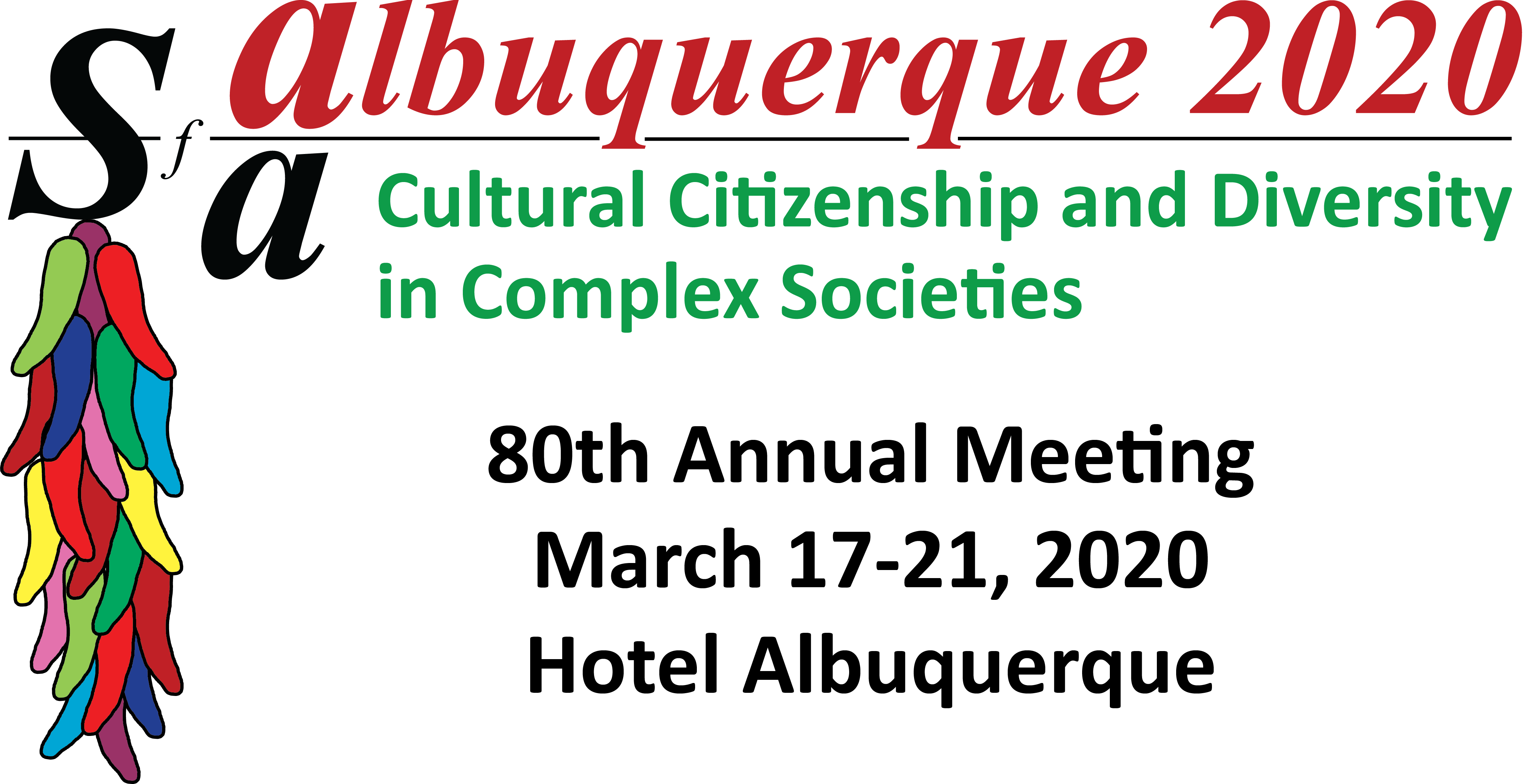An account is required to join the Society, renew annual memberships online, register for the Annual Meeting, and access the journals Practicing Anthropology and Human Organization
- Hello Guest!|Log In | Register
WARNER, Faith (Bloomsburg U) Intergenerational and International Trauma in Guatemalan Refugee Populations. This poster reviews data collected on traumatic stress in Guatemalan refugee populations affected by the sociopolitical violence of the 1980s, through the period of encampment in Mexico, to the current period of forced displacement at the U.S. border. Many migrants from previously traumatized communities and families are fleeing renewed violence in Guatemala, only to experience violence and trauma on their journey through Mexico and an uncertain and unwelcoming reception at the U.S. border. I consider the effects of long-term, multigenerational, and repeated trauma on the decision to migrate and the long-term consequences of displacement on well-being and adaptability. fwarner@bloomu.edu (TH-131)
WECHTER, Alex (CSULB) Homeless to a Degree: An Ethnographic Study of Student Homelessness at a California State University Campus. High tuition prices and increases in the cost of living have made going to college a struggle for many students attending. After fees, tuition, supplies and books, some students attending The California State University system, have little to no money for basic needs. This leads to many students suffering from both food and housing insecurity while attending the university. Addressing the issue of student homelessness and food insecurity has become a focus of both educators and the media. Based on interviews with ten students on the California State University Long Beach (CSULB) campus, this preliminary ethnographic study attempts to identify reasons. Alexwechter925@gmail.com (TH-131)
WESTBROOK, Marisa (UC Denver) Navigating the Risk of Exclusionary Displacement: A Provisional Conceptual Framework of the Drivers of Gentrification. Across the US, researchers have documented the negative impacts of quickly gentrifying cities, yet the experience of being at risk of being priced out of a neighborhood is not fully understood. Denver, Colorado is a strategic case of a large city with rapid growth and rising housing costs that is leading the nation in Latinx displacement due to gentrification. In this poster, I will present my theoretical framing and provisional conceptual frameworks for an in-progress ethnographic dissertation on how low-income households’ choices and actions shape gentrification in their neighborhood, linking these experiences to applied anthropology, migration, and political science. marisa.westbrook@ucdenver.edu (TH-131)
WILLIAMSON, Kenneth and SHEEHAN, Megan (CSBSJU) Food Insecurity on University Campuses: How to Best Address the Problem. Research addressing food security on college campuses has gained traction over the last five years, and an increasing number of studies highlight survey data suggesting that food insecurity is widespread on college campuses (i.e. Dubick 2016). This research explores issues of food insecurity at a small liberal arts college in rural Minnesota. Survey data at the school suggests that one in three students at this school experience food insecurity—data that mirrors national trends. This poster presents complementary qualitative research, addressing institutional trends noted in survey data. The poster also highlights some possible strategies for addressing campus food insecurity. (TH-131)
WINIECKI, Donald, KAPPELMAN, Katherine, and HAY, Bryant (Boise State U) Inductive Qualitative Social Science Research as a Necessary Element of Data Science. Data science (DS) applies exploratory mathematics to very large data sets to aid understanding of intractable phenomena. Sometimes characterized as artificial intelligence, DS can appear to replace human analytic ability. However, data science often requires qualitative researchers. We describe applied ethnographic work undertaken by Anthropology graduate and undergraduate students and a Sociologist to span gaps in data science, and project how products of applied ethnography can be used by data scientists to refine and improve the efficacy of their work. dwiniecki@boisestate.edu, katherinekappelm@u.boisestate.edu, bryanthay@u.boisestate.edu (TH-131)
WINSTEAD, Candace, LEACHMAN, Nicolas, JOHNSON, Amelia, and MILLER, Macie (Cal Poly U), WINSTEAD, Teresa (Saint Martin’s U) Harm Reduction Services Outreach: Expanding Access and Amplifying Participant Voice. SLO Bangers runs the only fixed-site syringe services and overdose education Naloxone distribution program in a geographically large county. This project was implemented to expand services by growing our network of satellite participants. Satellites exchange syringes and furnish Naloxone to those unable to come on-site. We will pay satellites for this work while collecting comparative data and conducting interviews to highlight areas of need and reveal service gaps. Since this population often experiences stigma and trauma associated with provision of health care, one desirable outcome of this project is elevating and empowering participants as active contributors to their community’s health. cwinstea@calpoly.edu (TH-131)
ZAGATA, Alison (Whitman Coll) Vines, Wines, and Wellness: Examining Cultural Perspectives on Healthcare through the Lens of the Walla Walla Wine Industry. Southeastern Washington is home to a vibrant wine industry, one so vibrant that it allowed the region to ride out the 2008 U.S. recession. It is also home to a large community of migrant laborers who reside at the confluence of geographical seclusion and a heightened state of immigration reform. This poster presents the discrete relationships that exist between wine drinkers and wine laborers to the industry. I examine these relationships through the lens of health and wellness with careful attention to the ways in which these distinct groups perceive sickness from a sociocultural standpoint. zagataaj@whitman.edu (TH-131)
ZRILE, Helena (Saint Vincent Coll) Food Insecurity on a College Campus. Food insecurity is the insufficient access to nutritious food and is a recognized concern for students in higher education. Students who are food insecure tend to have poorer academic outcomes and mental well-being. This poster reports on data collected to support the development of an initiative at a small liberal arts college to reduce food insecurity for its students through more appropriate meal plans, cooking lessons, and a food pantry. helena.zrile@stvincent.edu (TH-131)


Cart
Search